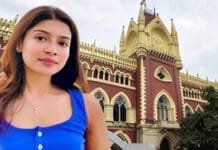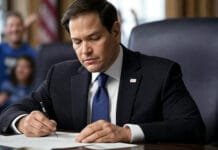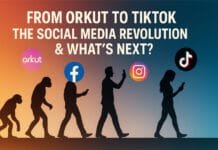The tech world is reeling after Telegram founder Pavel Durov revealed that his entire $14 billion fortune is destined to be inherited by the 100+ children he has fathered—either naturally or through sperm donation. With a calculated $132 million per child, this unexpected decision has positioned over a hundred Gen Alpha heirs to become some of the wealthiest individuals of the next generation.
Telegram’s Mysterious Billionaire Makes Unprecedented Move
At 40 years old, Pavel Durov is no stranger to making headlines. Known for creating the privacy-first messaging app Telegram, Durov is often likened to a modern-day tech libertarian, avoiding public appearances and refraining from traditional Silicon Valley glamour. However, his latest move could become one of the most debated tech legacies in modern history.
In a candid interview with French publication Le Point, Durov shared intimate details about his newly drafted will, which outlines how his immense wealth will be distributed not only to his six recognized children but to over 100 others born through sperm donations made over the past 15 years. Durov stated emphatically, “They are all my children and will all have the same rights!”
How Over 100 Children Came to Be In Line for a Multibillion-Dollar Inheritance
Unlike traditional heirs of billionaires who are often born into elite families, the majority of Durov’s children may not even be aware of their biological father’s identity. According to Durov, he began donating sperm as early as his mid-twenties and has since fathered children in at least 12 different countries.
These donations, made primarily through anonymous or semi-anonymous means, have created an international network of potential heirs. Despite their unconventional origins, Durov insists on equal treatment for all his children—biological or otherwise.
Equal Wealth, Deferred Access: The Billionaire’s Vision
Though the figure of $132 million per child is staggering, access to this inheritance won’t be immediate. Durov emphasized his belief in independence, stating, “I decided that my children would not have access to my fortune until a period of thirty years has elapsed, starting from today.”
This condition means that the heirs—many of whom are still toddlers—will not receive their share until around 2055. Durov wants them to grow up as “normal people,” unencumbered by wealth that could otherwise shape their character or ambitions prematurely.
Inside the Logistics: Verifying Paternity Across Borders
Determining who is eligible to inherit isn’t a simple matter. Fertility experts from Give Legacy, the clinic reportedly involved in Durov’s sperm donations, note that paternity verification can be achieved via standard DNA testing. However, whether a child is aware of their biological connection depends on if Durov donated as a “directed donor” or an “anonymous donor.”
Khaled Kteily, CEO of Give Legacy, noted: “Paternity tests can confirm that Pavel is the father. Anyone who believes that he is their biological father could submit a sample to verify.” This opens the door to future court claims, legal debates, and possibly dozens of new claimants once the will becomes active.
Tech Titans and Their Heir Strategies: Durov vs. the Industry
While some billionaires, such as Bill Gates, have publicly stated they’ll donate most of their wealth to philanthropy, and others like Laurene Powell Jobs aim to limit generational wealth, Durov’s strategy stands apart. Unlike many peers who view wealth inheritance as potentially toxic, Durov is choosing inclusivity and genetic equality as the core pillars of his legacy.
Even figures like Guy Fieri, who has often mentioned his desire to teach self-sufficiency to his kids, pale in comparison to the sheer magnitude and egalitarian vision that Durov has laid out.
Implications for the Next Generation of Billionaire Heirs
What makes Durov’s announcement so fascinating isn’t just the sum—though a $132 million inheritance is notable on its own—but the philosophy behind it. He’s introducing a new precedent: inheriting not just wealth but legitimacy through biology—irrespective of social upbringing, family structure, or national origin.
This could fundamentally change how future estates are structured, especially for ultra-high-net-worth individuals engaged in donor conception or poly-parental setups. The notion that hundreds of people across the globe, from varying walks of life, could one day receive a multi-million-dollar inheritance from a tech billionaire borders on unprecedented.
The Future: Legal Challenges, Identity Claims, and Global Reach
Durov’s estate plan raises several legal and ethical questions. In many jurisdictions, anonymous sperm donation is protected by privacy laws. But if inheritance is promised to anonymous donor-conceived children, those protections could become battlegrounds for estate access.
Already, international estate lawyers are warning of potential cross-border inheritance disputes, identity fraud attempts, and complex tax implications. Some children may already be aware of their paternity and planning claims, while others may remain oblivious until adulthood.
The logistical task of tracking, verifying, and disbursing wealth to over a hundred individuals spanning multiple nations, legal systems, and languages could be a nightmare—or a revolution, depending on execution.
An Uncharted Legacy of Biological Equity
Durov’s approach is deeply personal, yet globally significant. He’s not only redefining fatherhood but also wealth distribution in the age of artificial conception. In a world where digital privacy, global citizenship, and alternative family structures are gaining momentum, this bold inheritance strategy might inspire a generation of non-traditional legacies.
Where other tech titans lean into philanthropy or dynastic conservatism, Durov has chosen the most unorthodox route of all—trusting in the bloodline, regardless of circumstance.
As these Gen Alpha children grow, many unaware of the immense wealth waiting for them, they symbolize not only the future of Telegram’s legacy but also a new philosophy of wealth, family, and fairness.
















